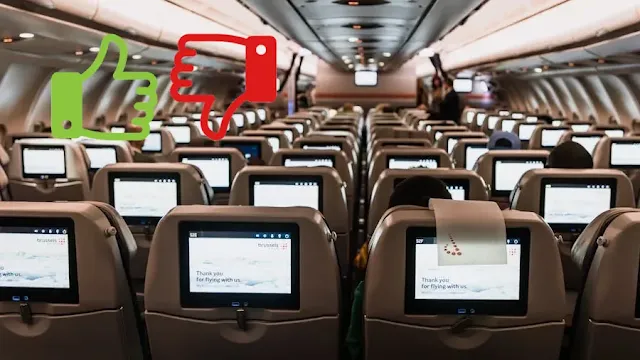Last year, during a long-haul flight from New York to Delhi, I eagerly requested a vegetarian meal, expecting a creamy paneer curry. To my surprise, I received a vegan dish—plain veggies with no dairy in sight. While it was healthy, I missed the richer flavors I’d hoped for. This experience taught me the importance of understanding the difference between vegan and vegetarian in-flight meals to avoid disappointment at 30,000 feet.
The key difference lies in the exclusion of animal products. A vegetarian diet avoids meat, poultry, fish, and seafood, while a vegan diet goes further, excluding all animal-derived products like dairy, eggs, and honey. On flights, these distinctions matter, as airlines offer specific meal codes to cater to these preferences.
Table of Contents
Understanding Vegan vs Vegetarian Meals
A vegetarian meal on a flight typically excludes meat, poultry, fish, and seafood but may include dairy or eggs. A vegan meal, often labeled as Vegetarian (non-dairy) or VGML, excludes all animal products, including dairy, eggs, and honey. This makes vegan meals suitable for both vegans and vegetarians, but vegetarians might miss out on tastier dairy-based options if they’re served a vegan meal by default.
For example, a vegetarian lacto-ovo meal (VLML) might include cheese or yogurt, while a vegan meal (VGML) sticks to vegetables, fruits, and plant-based ingredients. Understanding these differences helps you request the right meal for your preferences.
Airline Meal Codes Explained
Airlines use specific codes to categorize special meals. Here are the key vegetarian and vegan meal codes:
- VGML (Vegetarian/Vegan Meal): Free of all animal products, including dairy and eggs. Contains vegetables and fruits only.
- VLML (Vegetarian Lacto-Ovo Meal): Includes dairy and eggs, alongside vegetables and fruits. No meat or fish.
- VOML (Vegetarian Oriental Meal): A vegan meal prepared in a Chinese or Oriental style, free of animal products.
- AVML (Asian Vegetarian Meal): A vegetarian meal with dairy, often spicy, inspired by Indian subcontinent flavors. No meat, fish, or eggs.
- VJML (Vegetarian Jain Meal): A strict vegan meal for the Jain community, excluding root vegetables like onions, garlic, and potatoes.
- RVML (Raw Vegetable Meal): Consists solely of raw vegetables and salads.
- FPML (Fruit Platter): Contains only seasonal fresh fruits, often for dietary or fasting needs.
Knowing these codes ensures you request the meal that aligns with your dietary needs.
Vegan and Vegetarian Meals by Airline
Airline offerings vary, and cultural differences influence meal quality. For instance, Air India offers both vegan (VGML) and Asian Vegetarian Meals (AVML), which may include dairy and are flavored with Indian spices. Indigo, a low-cost carrier, may not always offer vegan meals, so it’s wise to check in advance or bring a snack. Middle Eastern and Asian-Pacific airlines often provide VOML, tailored to regional tastes.
According to a Reddit discussion, some travelers have received vegan meals when requesting vegetarian ones, missing out on dairy-based options. Always confirm your meal code when booking.
Tips for Booking Your Special Meal
To ensure you get the right meal:
- Request your meal at booking or at least 48 hours before your flight.
- For connecting flights, inform customer service agents at the airport to request a special meal for the next leg.
- Bring a small veggie snack as a backup, as suggested by HappyCow.
- Check airline policies, as some, like Air India, offer specialized meals like AVML, while others, like Indigo, may have limited options.
Frequently Asked Questions
What is the difference between vegetarian and vegan meals?
Vegetarian meals exclude meat, poultry, fish, and seafood but may include dairy and eggs. Vegan meals exclude all animal products, including dairy, eggs, and honey, focusing on vegetables and fruits.
Does a vegetarian eat eggs?
Some vegetarians, specifically lacto-ovo vegetarians, eat eggs and dairy. Vegans and some strict vegetarians do not consume eggs.
What is the vegan meal code for airlines?
The vegan meal code is VGML, also known as Vegetarian (non-dairy), which excludes all animal products.
What is the difference between VGML and VOML?
VGML is a standard vegan meal with vegetables and fruits. VOML is a vegan meal prepared in a Chinese or Oriental style, common on Middle Eastern and Asian-Pacific airlines.
What is a vegetarian vegan meal in flight?
A vegetarian vegan meal (VGML) is free of all animal products, suitable for both vegans and vegetarians, containing only vegetables and fruits.
What is a vegan strict vegetarian meal?
A vegan strict vegetarian meal, often VGML or VJML, excludes all animal products and, in the case of VJML, root vegetables like onions and garlic.
Does vegan automatically mean vegetarian?
Yes, vegan meals are vegetarian by default since they exclude meat, fish, and animal products, but vegetarian meals are not always vegan due to possible dairy or egg content.
Does Air India serve vegan and vegetarian meals?
Yes, Air India offers vegan (VGML) and vegetarian meals like AVML (Asian Vegetarian) and VJML (Jain Vegetarian).
What is an Asian Vegetarian Meal on Air India?
An Asian Vegetarian Meal (AVML) on Air India is a vegetarian meal with dairy, flavored with Indian spices, excluding meat, fish, and eggs.
Does Indigo have vegan meals?
Indigo’s vegan meal availability is limited. Check with the airline or bring a snack as a precaution.
Is an Asian Vegetarian Meal different from a vegetarian meal?
Yes, an Asian Vegetarian Meal (AVML) is a vegetarian meal with dairy, spiced with Indian flavors, while a standard vegetarian meal (VLML) may include eggs and dairy without specific regional seasoning.
Related Resources
Inflight Food Vegetarian: International and Domestic Flights
What is a Hindu Meal - Inflight Special Meal (HNML)?
Diabetic Meal on Flights (DBML): International and Domestic

















